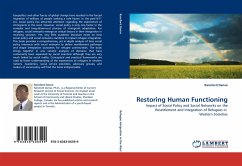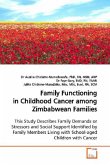Geopolitics and other forces of global change have resulted in the forced migration of millions of people seeking a safe haven. In the post-9/11 era, social policy has attracted attention regarding the experiences of immigrants in the west. However, social policy is only one factor in the complex and long-drawn-out process of immigrant adaptation. For refugees, social networks emerge as critical factors in their integration in receiving societies. Yet, very little academic literature exists on how social policy and social networks combine to impact refugee integration. This book provides a comprehensive, yet in-depth analysis of how social policy intersects with social networks to define resettlement pathways and shape integration outcomes for refugee communities. The book brings together in one volume analyses of domains that have customarily been separated by social scientists although they are very much linked by social reality. Conceptual and practical frameworks are used to foster understanding of the experiences of refugees in western nations. Academics, social service providers, advocacy groups, and makers of social policy will find this book indispensable.
Bitte wählen Sie Ihr Anliegen aus.
Rechnungen
Retourenschein anfordern
Bestellstatus
Storno








